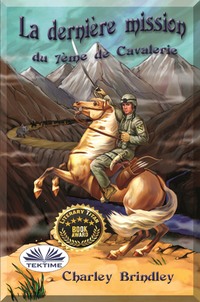
Полная версия
Raji, Book Three
But Kayin was no boor. She talked easily about Burma, her job at the hotel, and she asked questions about America and the freedoms we enjoyed.
At first I kept my answers short and to the point, not wanting to dominate the conversation. She moved from one topic to another, keeping a nice balance between questions and answers.
Our food came and an hour passed quickly, then another.
After the delightful dinner, we strolled for hours through the parks, past many temples, and all the way up to the Golden Palace, with its wide moat and tall towers at each of the four corners.
“Have you ever been inside?” I asked.
“The Golden Palace?” she said. “That is where King Rama lives.”
“Ah, King Rama’s palace. But have you been inside? I wonder what it’s like.”
“Oh.” She hesitated and watched one of the towers for a moment before she went on. “In the photos I have seen, it is, how you say, ornament?”
“Ornate,” I said.
“Yes, ornate. I am sorry my English is no so well.”
“Your English is wonderful. Will you teach me Burmese?”
She looked at me for a long time. “Why did you come to Mandalay?”
We stood at the edge of the moat, tossing pebbles into the dark water.
“I’m on my way to Myitkyina,” I said. “My friend is meeting me at the hotel in a few days. I signed the two of us onto a riverboat called the Gaw-byan. I guess we’ll be working as deckhands, I’m not sure. But we don’t mind hard work.”
“Why Myitkyina?”
“Just to see what’s there.”
“But what do you do?” she asked.
At that time, I still called myself a medical student. Actually, I was no longer one and probably never would be again. So what was I? A bum, that’s all I could think of, but I couldn’t tell her that.
“I’m a medical student.”
“When will you finish medical school?”
Her questions were much better than mine. She was getting to the heart of things, and I was feeling a bit uncomfortable.
“To tell you the truth, Kayin, I may never go back to school.”
“Why?”
“I’m discouraged, disillusioned, and sick of how the politicians and businessmen have ruined our world.”
“And you have come to my Burma to find what?”
What indeed. Why was I in Burma? Why was I anywhere? This wasn’t the way I thought our evening would go.
“I’m beginning to believe I came to Burma to find you.”
Kayin removed her sandals and sat on the edge of the moat. She splashed her feet in the cool water, then picked up a handful of pebbles.
“Not possible,” she said.
I sat down beside her. “What is not possible?”
She didn’t answer; only tossed the little rocks into the water, one at a time. I removed my shoes and socks. The water was much colder than I expected.
“It is not possible you came all this way to find me.”
“But I did find you.”
“Then you came for nothing, no reason.”
She seemed to struggle with her emotions as the stones splashed into the dark water. Finally, she turned toward me and held my gaze for a long moment, then she dropped the last stone into the moat and dusted off her hands.
“You see these eyes?” she asked.
I nodded.
“My eyes are from my Scottish father. All my life I have been an, how do you say, an outlaw?”
“Outcast?”
“Yes, an outcast. My people, the Burmese, treat me as untouchable.” She looked down at her hand, which I now held in mine. “Do you understand an untouchable in India?”
“Yes, a dalit, the lowest of the castes.”
“And the British treat me worse than they treat the pure Burmese. They think I am some sort of aberration. My mother was the only person who ever loved me, and she...” Kayin pressed my hand, and I knew she was crying. “I cannot never do this to another child to come,” she whispered.
“Kayin.” I lifted her chin and gazed into her wet eyes. “If you have a blue-eyed child, you think he will be treated as an outcast also?”
“Yes.”
“Do you believe you should remain childless all your life because of something your mother and father did as an act of love?”
She gave no response.
“You, my beautiful Burmese friend, should be proud you’re part of two different worlds. You are, I think, about eighteen or nineteen?”
“Nineteen.”
“We’re almost the same age. I’m twenty-one.” I reached for her other hand. “And you’ve just made me realize I’ve been beating myself up for the past six months for something that’s not my fault.”
She knitted her eyebrows in a look I’d soon learn to love.
“My friend and I left medical school because we were disillusioned with the mess the last generation had made of the world. We saw no purpose in continuing our studies just to carry our degrees to the bread line and beg for handouts.”
“But doctors are needed all over the world.”
“Maybe so, but we were determined to go into research and work on cures for malaria and smallpox. Now all the research projects have been shut down for lack of funding.”
“Research is fine,” she said, “but do you realize the British take all our resources, and what do they give us in return? Protection! Protection, they say, from invasion, from illnesses, from our own ignorance. If they would only give us a little medical help, we would be most grateful. But we have only a handful of doctors and nurses for our twenty million people.”
“Why, that’s ridiculous,” I said. “You should have one doctor and a nurse for every five hundred people.”
“This is very true, but we would be happy if only our seriously ill could see a doctor from time to time.” She was agitated now, and I smiled as I watched the blue fire in her eyes. She’d forgotten about her personal problems as she attacked the British overlords. “The smallpox epidemic that took my mother, killed many thousands, and nothing was done to help us.”
“But schools. I know the British provide schools and government administration.”
“Ha!” She laughed. “The British have wonderful schools, the best. They bring many teachers from England to teach their precious children the proper way of speaking and eating and how to rule over the poor, retched natives the once-proud Burmese people have become. Our children still squat in mud huts and watch someone scratch numbers in the dirt. That is your wonderful British education system.”
“And if you were queen of Burma, what would you do?”
“Please,” she said, pulling her hands from mine. “Do not make of me a fool. I am not a child that is to be indulged.” She looked away toward the palace. A light winked off in one of the tall towers.
“Believe me, Kayin, I never indulge anyone. I’m deeply interested in your thoughts and ideas about what’s to be done with the world. It’s our generation, yours and mine, that’s to repair the damage done by rich old men, living in their ivory mansions. A year ago, I would have argued against you and on the side of the British. But now, I don’t know what to think. I find it very difficult to take issue with you. I wanted our evening to be pleasant and beautiful. All afternoon, I thought only of how I could bring cheer into your life, and perhaps get you to like me a little. I really think of you as my intellectual equal, and when I ask what you would do if you were in control of your own country, I mean it as a theoretical question. What would you do if you suddenly had the power to do something for your people?” I didn’t know where this speech came from, but I was beginning to sound like the debater I once was.
Kayin looked at me for a long time. This wasn’t the look I remembered from our walk to the bank earlier that day, where our conversation was light and carefree. This was a look of antipathy or malice.
“You are American.”
I nodded.
“You are close to being British.”
I shrugged, then shook my head. I didn’t consider myself close to being British at all.
“Then, may I put it this way?” she asked. “You are closer to British than to Burmese.”
I agreed that was true.
“Don’t take this the wrong way, Mr. Busetilear, but if I were Queen of Burma, as you say, I would summarily kick out all the Anglos, including Americans, and also the Germans and especially the French, and do it smartly, too.”
“I believe you would,” I said. “I believe you would surely do it.”
“And now what do you think of your new Burmese friend?”
“What do I think of you?” Now it was I who looked away to gather my thoughts. “I think you’re a rebel. I’m pretty sure you know a bit of American history and of how we threw off the yoke of British rule a hundred and fifty years ago.”
“Yes.”
“They called us rebels and terrorists. They tried to suppress us with their military might. They will do the same thing here in Burma.”
“Let them try,” she said, “perhaps we have a Patrick Henry and a Betty Ross waiting somewhere in our own population.”
Betsy, I thought but didn’t correct Kayin this time.
I stood and held out my hand to her. After a moment, she took it and pulled herself up.
“Let’s go back to the hotel,” I said.
“And?”
“And we’ll have a cup of tea in the dining room and talk about medical students and revolutionaries.”
Chapter Three
In the hotel dining room, we shared a pot of tea, along with golden shweji, the little wheat cakes with coconut cream and raisins. We talked until 11 p.m., when the dining room closed. We then left the hotel to walk back toward her rooms, but as we reached the corner of the building, the skies opened in a heavy downpour.
“This way, quickly!” she said as she took a key from her purse while we ran.
When we reached a side entrance to the hotel, Kayin slipped the skeleton key into the lock and shoved open the door. We jumped inside, already wet from the rain, then she closed the door and locked it.
In that small anteroom, we stood facing another door, and across from it was a stairway leading up to the floors above. Kayin said the door led to the kitchen, where the cook and his staff would be cleaning up. Neither of us made the decision to take the stairs; it was simply the only option.
In my room, I gave her a towel and my robe while I went to the bathroom to put on dry clothes. When I came out, she was drying her hair, and I could see she kept on her wet clothes under the robe. I knew she was uncomfortable and nervous about being alone in the room with me, so I suggested we scoot the chairs out onto the balcony. The rain had stopped as suddenly as it had begun, and the moon peeked through a break in the clouds. Outside, she wouldn’t feel threatened, and we could relax.
I had no intentions of trying to make love to her. If that came at some point later in our relationship, it would be fine; even wonderful. But not on this night. It wouldn’t be proper. I wanted to know more about her past, as well as her plans for the future. Anyway, I had no idea how to get a woman into bed. Did one simply ask a girl to get undressed? Or should there be a few hours of drinks, jokes, and foreplay, as I’d read in books? Perhaps the man patiently waited for the woman to tell him when it was time to proceed to the next step.
I hated my lack of experience in matters of love, and I knew when, or if, it came about, I was sure to make a hundred juvenile mistakes. Of course, I was aware of the mechanics and function of sex from my studies, but those professors of medicine wrote nothing of the emotional or sensual side of that most intimate of all human behaviors. Why had Raji and I never made love? If for no other reason than to see how to go about it and what should be done, and in what order. But no, we were too ‘intellectual’ to indulge in the crass activities of other young people. We couldn’t lower ourselves to waste time on romance. Too bad; I could certainly use the experience now.
We squeezed ourselves onto the little balcony, then relaxed in the chairs as we watched the city lights wink off one by one. The noises filtering up from the street slowly diminished until we heard only the occasional clatter of wheels on cobblestones as a rickshaw driver pulled his last customer home from a late night on the town.
“Are you warm enough?” I asked Kayin.
She smiled and nodded.
As we sat facing each other, with our knees touching, I could almost feel the pulse of her heartbeat.
“Have you always lived in Mandalay?” I asked.
“Yes. I was born in the Quang Ka quarter, just down near the river.”
We left the politics alone and talked about ourselves. Her mother died when Kayin was nine. She was raised by another member of her family. They didn’t have enough money to send her to school, but she learned English from a man she called Than-Htay. At fourteen, she was already supporting herself and made her way as best she could by selling fresh fruit on the streets. She was then hired by the hotel because of her knowledge of English.
I talked about my mother and father, the farm in Virginia where I grew up, Octavia Pompeii Academy, then medical school. In the spring of 1928, my mother moved all the family’s investments to government bonds. The returns weren’t so high compared to the roaring stock market, but investing in the stock market, she told me and Papa, was like riding a wild bull—it was surely exciting, but at some point the beast would throw you to the ground and perhaps trample you to pieces. Because of her good judgment, my family was financially better off in 1932 than before the crash of ’29. The good old U.S. government kept right on paying dividends on my mother’s bonds, despite the Depression.
I told Kayin about leaving school and hiring on the ship bound for India. I wrote to my mother but didn’t ask her for any money. With so many people suffering from the devastating economic depression, I felt I had no right to my family’s money. They’d built up the farm from nothing, and the bulk of their income now came from the government bonds and a small herd of miniature horses, but all that had nothing to do with me. I resolved to be as destitute as the vast majority of the world and try to make my own way.
By 3 a.m. on our first night together, Kayin and I knew almost as much about each other as we knew about ourselves. That was also when she began teaching me to speak Burmese. I’ve always had a knack for languages, learning Hindi very quickly from Raji. The grammar was a bit difficult, but slang was my biggest problem. Learning a nation’s slang is always the downfall when one tries to go native.
“What time do you have to be at work?” I asked her.
“Seven.”
I walked with her the few blocks to her home, a nearby apartment located above a shop, where she lived with another girl. I asked why she didn’t live at the hotel, and she told me it was far too expensive.
She would get only a few hours’ sleep before returning to work, so I decided to get up early and find things to do around the city. If she had to stay awake all day, then I would, too.
We met for lunch at the Yadana cafe.
“Do you not tire of restaurant food,” she asked, “all time, every meal?”
“Yes. It’s all right for a while, but then everything begins to taste the same.” I broke a cracker and spread a little butter on it.
She sipped her tea and glanced over at a waiter who picked up a few coins from a nearby table. “And it is also quite expensive.”
“I know.” I nibbled my buttered cracker.
“Will you not come to our home for dinner tonight?” Her teacup rattled into the saucer when she hit the rim instead of the center. Her face flushed a little as she looked down at the offending cup.
“Willingly,” I said. “But your roommate?”
“Lanna will not mind,” Kayin said quickly. “She shall be glad of the company.”
We set a time for me to drop by for dinner that evening as we walked back to the hotel.
“You must be exhausted,” I said.
“No, not at all. I found last night very delighted.”
“Delightful,” I said. “Does it bother you when I correct your English?”
“I am grateful to you for doing that. How else should I know?”
“And,” I said, “as you teach me Burmese, you can give the corrections back to me.”
“I will,” she replied as we came to the door of the hotel. “I will be looking for you tonight.”
Kayin touched my hand, and I had the distinct feeling she wanted to kiss my cheek but held back. I certainly wanted to kiss her.
She hurried into the hotel and back to work.
* * * * *
Lanna and Kayin’s home consisted of two small rooms and a tiny kitchen above a weaver’s shop in Hoa-Bin Road. They shared a communal washroom with some other families in the building next to theirs.
“Where’s Lanna?” I asked as I settled myself on the floor at a low table where Kayin had directed me.
She ran to the kitchen to attend to something on the stove. “She had to go on urgent family business, will return in two hours,” she said as she brought a large tray to the table. “More or less,” she added and gave me a quick smile as she took her place on the floor across the table from me.
What a wonderful dinner we had. Central to the meal was a large platter of steamed rice, with a delicious chicken curry, along with two large salads for us to share. One called lephet, and the other a ginger salad. The lephet was carefully arranged on a long plate with a multitude of ingredients, including dried shrimp, toasted yellow peas, sesame seeds, fried garlic, green peppers, lime juice, and green chilies, all mixed at the table according to one’s taste. For desert, we had a tasty coconut custard.
As we cleared the table and put away the food, I told Kayin it was the best meal I’d had since I left home for the academy, five years before. With typical Burmese modesty, she refused to take credit for the meal, saying Lanna had done most of the preparation before she left.
It was late, and Lanna hadn’t come back. Kayin showed no concern about her roommate, and I soon realized she probably wouldn’t be home that night.
Chapter Four
The technical difficulties I’d pondered over the proper approaches to making love never developed. We were simply sitting on cushions next to each other on the floor, listing to Glenn Miller’s music coming over the radio from the BBC, when she laid her head on my shoulder. I slipped my arm around her, then, almost as a continuation of my movement, she tilted her head back, leaving our lips on a slow collision course. From that point on, nature took complete control of our bodies.
The last thing I remember was hearing the words to Cole Porter’s Let’s Do It, Let’s Fall in Love. Then it was another night without sleep, but neither of us minded. I think Kayin realized from my fumbling that I’d never been in bed with a woman. She whispered into my ear that she wasn’t sure about what to do, so we’d have to learn together. By sunrise, we were both thoroughly initiated in the art of lovemaking.
All the next day, I prowled libraries, museums, parks—doing anything to stay awake. Finally, in the evening she came to my room. We didn’t bother with food or drink, but went straight to bed and slept soundly in each other’s arms until four in the morning. We got out of bed two hours later, and I walked her home so she could get ready for work.
* * * * *
A week later, early on a balmy Tuesday afternoon, I leaned on the counter, chatting with Kayin. I knew Mr. Haverstock, the manager, would be gone for at least an hour. Every day at around that time, he would leave, saying he had to inspect the rooms to make sure the employees had done a proper job of cleaning.
“The bloodless fool,” Kayin said as she tallied the hotel ledger. “Everyone on staff knows he is soundly sleeping in one of the vacant rooms. He naps for an hour or more, letting us think he is performing some sort of critical management duty. But we are happy for it. It is at that time we can relax and do what we want. It is not that we are lazybones or finding careless time; it is only that we can get more of our work done without him peeping over our necks every minute.”
“Bloody fool,” I corrected her slang.
“Yes, he is that also,” she said.
Suddenly, she became alert and her commercial smile came back. She looked beyond me, and I knew another guest was coming to the counter from behind me.
“Welcome to the hotel Nadi Myanmar,” Kayin said to the newcomer.
“Hey, sailor,” the guest said. “Goldbricking again and flirting with the lady, I see.”
I recognized the voice. “‘Bout time you got here, Raji.” I turned to face her.
She gave me a hug and kissed my cheek. As I leaned back to look her over, I saw her gaze pass over my shoulder. With a tiny smile, she nodded toward Kayin.
“Oh, I’m sorry...” I started to introduce them, but I could see half of that had already been done. Kayin held Raji with the coldest look I’d ever seen in my life. She then gave me that same hard stare.
“Ahem,” Raji cleared her throat. “Perhaps you forgot to tell her about me, Fuse.”
“Fuse?” Kayin repeated my nickname, and the word dripped with a venom only a woman can inject into a single syllable.
“I told her you were coming,” I said to Raji while I watched Kayin’s eyes. I never knew the color blue could be so very frosty.
Just then, her professional smile returned and she greeted a pair of new guests. While the man and his wife filled out the hotel register, I tried to get her attention.
“Kayin, I need to tell you—”
“Please move to lounge or the restaurant,” Kayin interrupted me icily. “Or to your room to conduct personal business, please, now. I must perform my work.”
The man glanced up at me, then at Kayin, who gave him an almost sweet smile and indicated she wasn’t referring to him.
I took Raji up to my room, which was probably my second mistake of the day, since Kayin still smoldered in the lobby.
“She is very beautiful,” Raji said as I closed the door and put her suitcase on the bed.
“Yes.”
“How well do you know her?”
“Very well.”
“Very?” Raji gave me a quick look and grin.
“Very!”
“Really?” She stood still, staring toward the French windows, as if she were trying to remember something. Finally, she opened her suitcase and picked up a white taffeta dress to shake out the wrinkles. “And you told her about me?”
“Yes, many times.” I took a hanger from the closet and handed it to Raji for her dress. “I told her we went to school together, crossed the ocean together, went to India to see your family...”
“She seemed quite surprised to see me,” Raji said, giving me a puzzled expression.
“Well, maybe I forgot to tell her you were a woman.”
“You forgot?”
I made a helpless gesture.
“Fuse, sometimes I’m surprised you’re able to function on your own without adult supervision.”
“Me, too. What should I do?”
“You, my friend, are a very intelligent man, and at the same time a complete idiot.” She gave me her hangered dress and motioned for me to put it in the closet.
“Yeah, but what can I do now?” I hung her dress on the rod next to my robe.
“Stay here. I don’t want you making any more damage. Are you understanding me?”
“I’ll stay right here until you come back.”
For over two hours, I paced the floor. Exactly twenty-three steps from the front door to the French windows, and twenty-three back to the door. I tried to read a book but couldn’t concentrate. I stood on the balcony, counting the people below. I shaved twice and cut myself three times. I changed my shirt, polished my shoes, then, in my shiny black pointy-toe wingtips, measured the distance between to the French windows a few more times. The twenty-three steps never varied an inch.
Finally, I heard female laughter outside in the hallway, then my door opened. Raji and Kayin came into the room, arm-in-arm, still laughing. Probably about me. I didn’t care—it was a beautiful sound.









